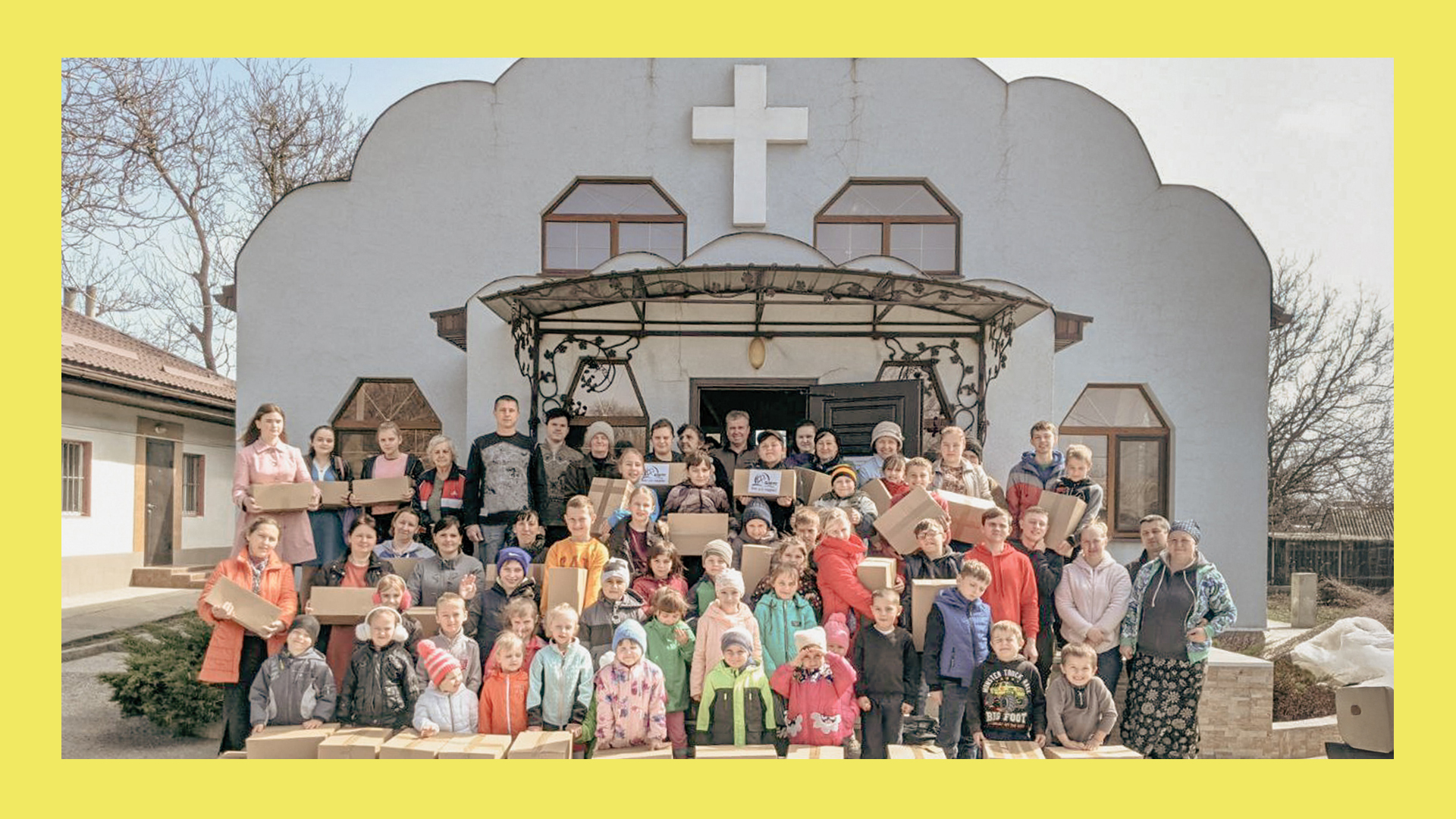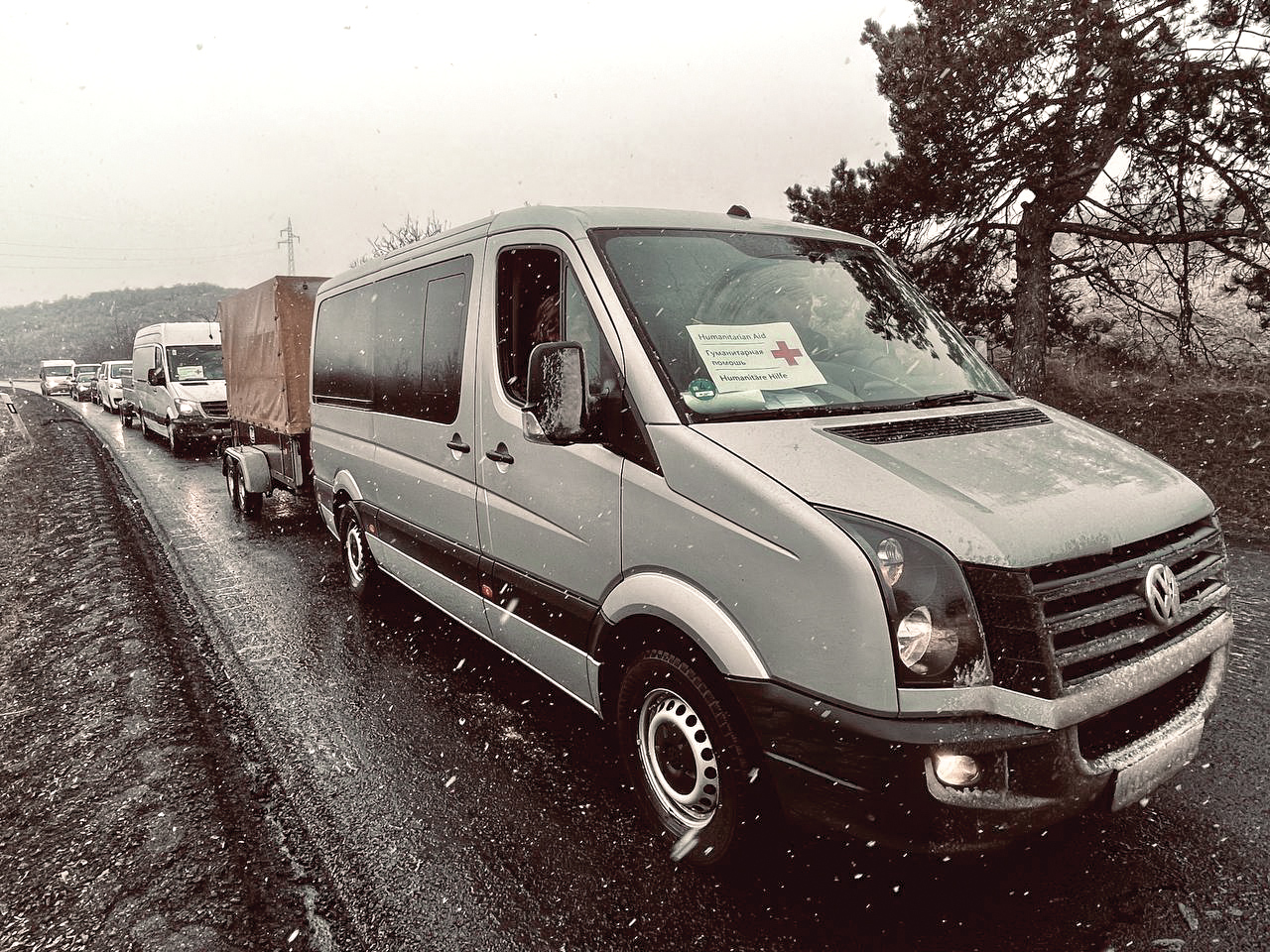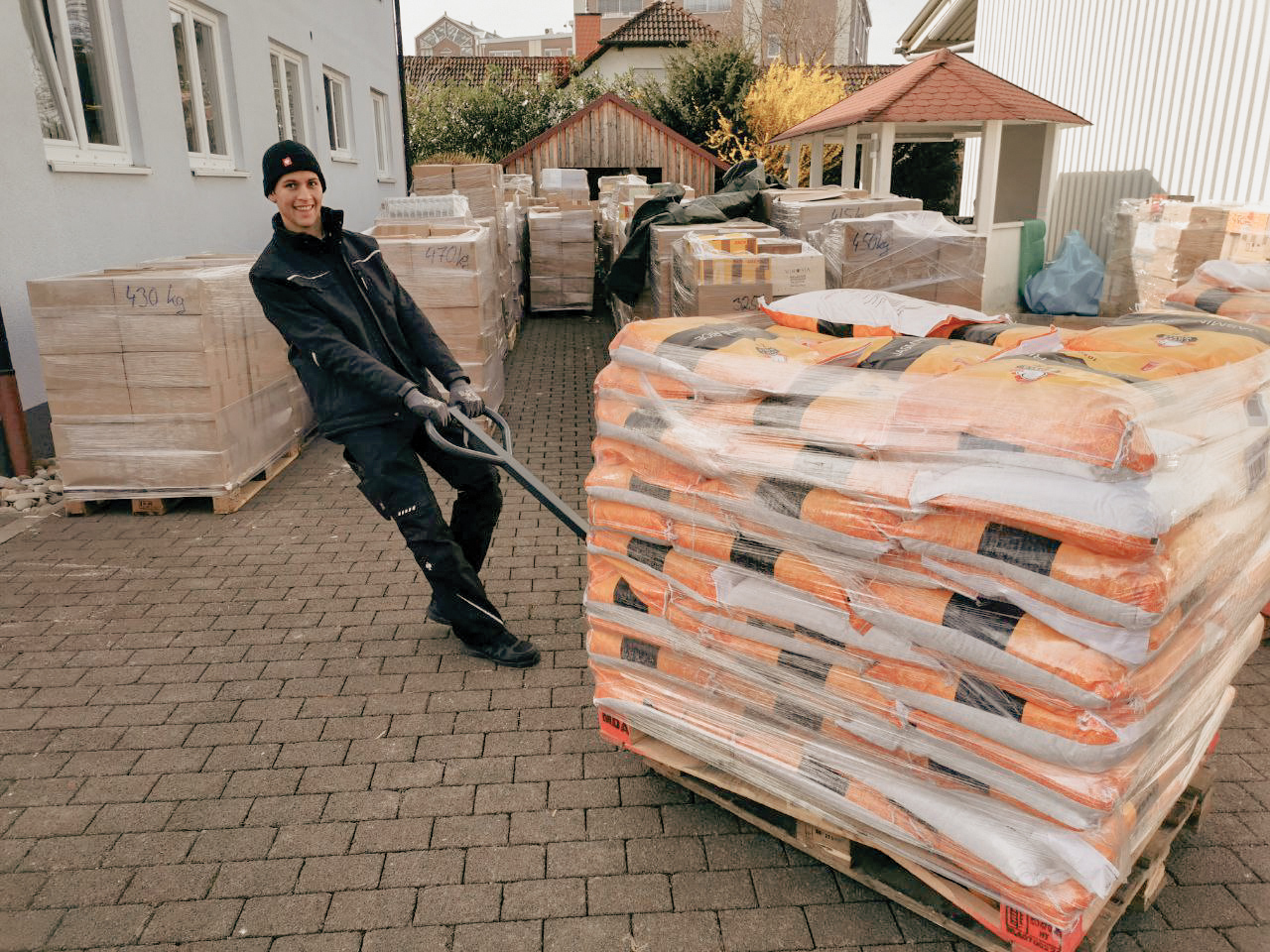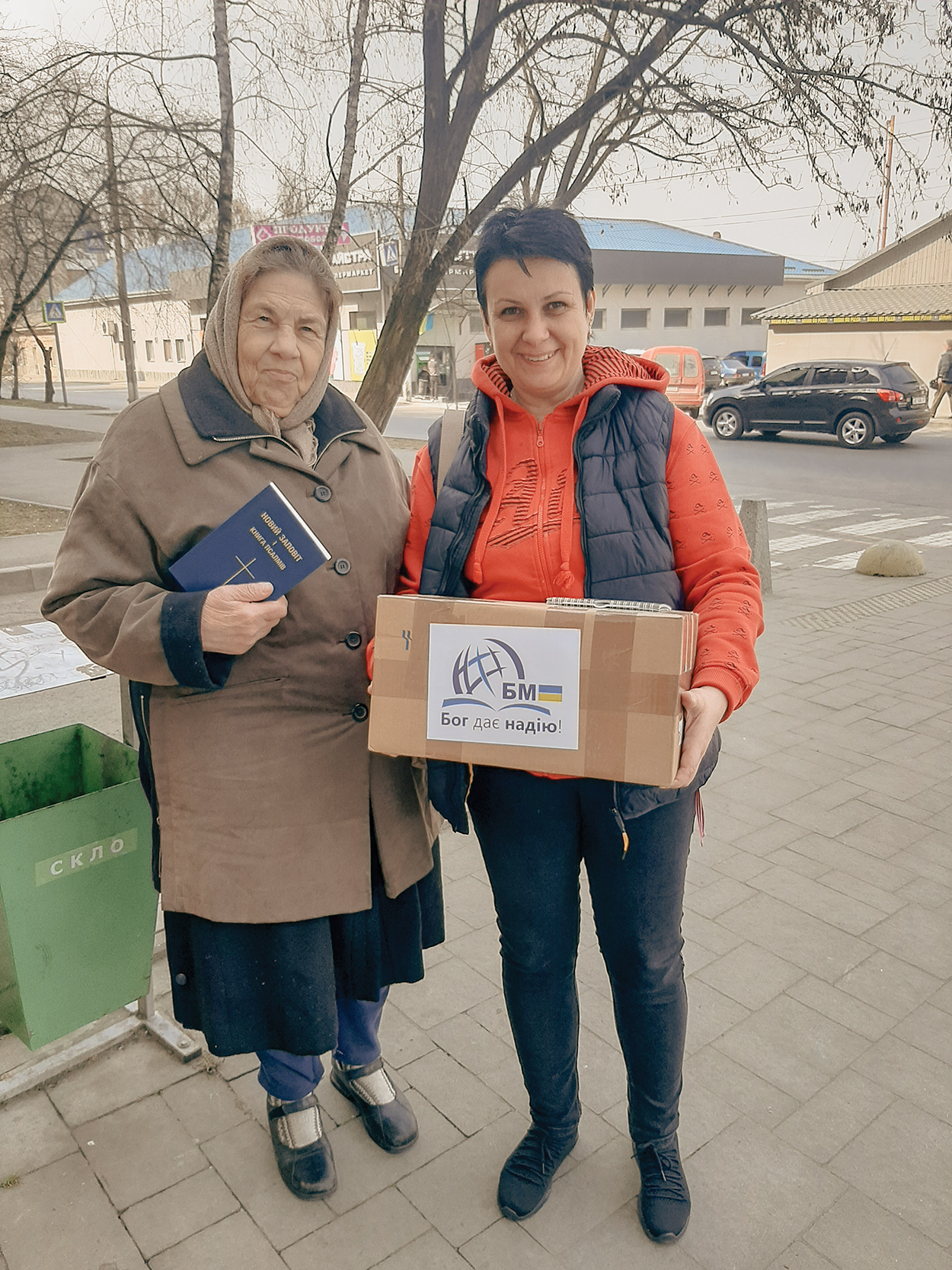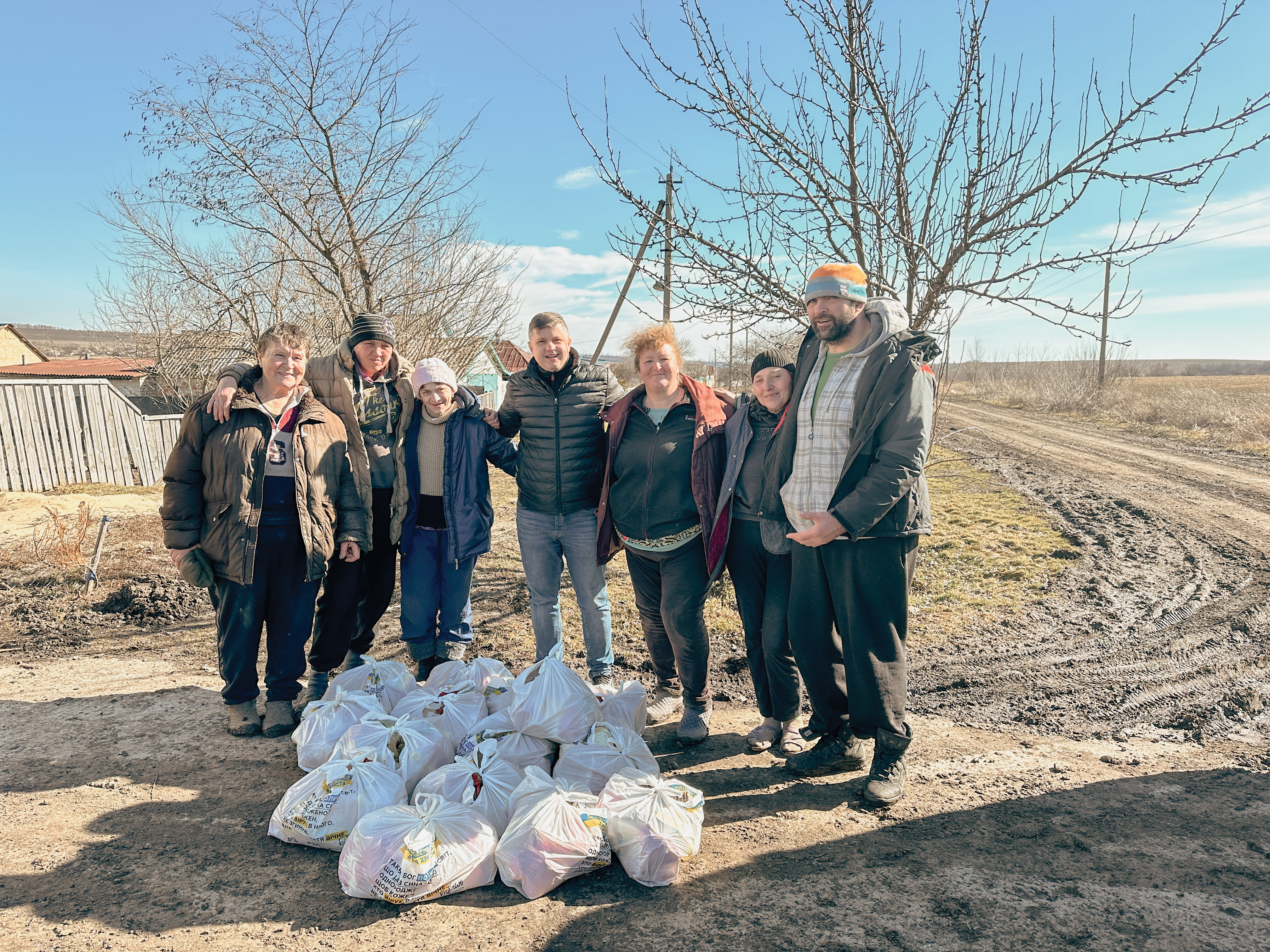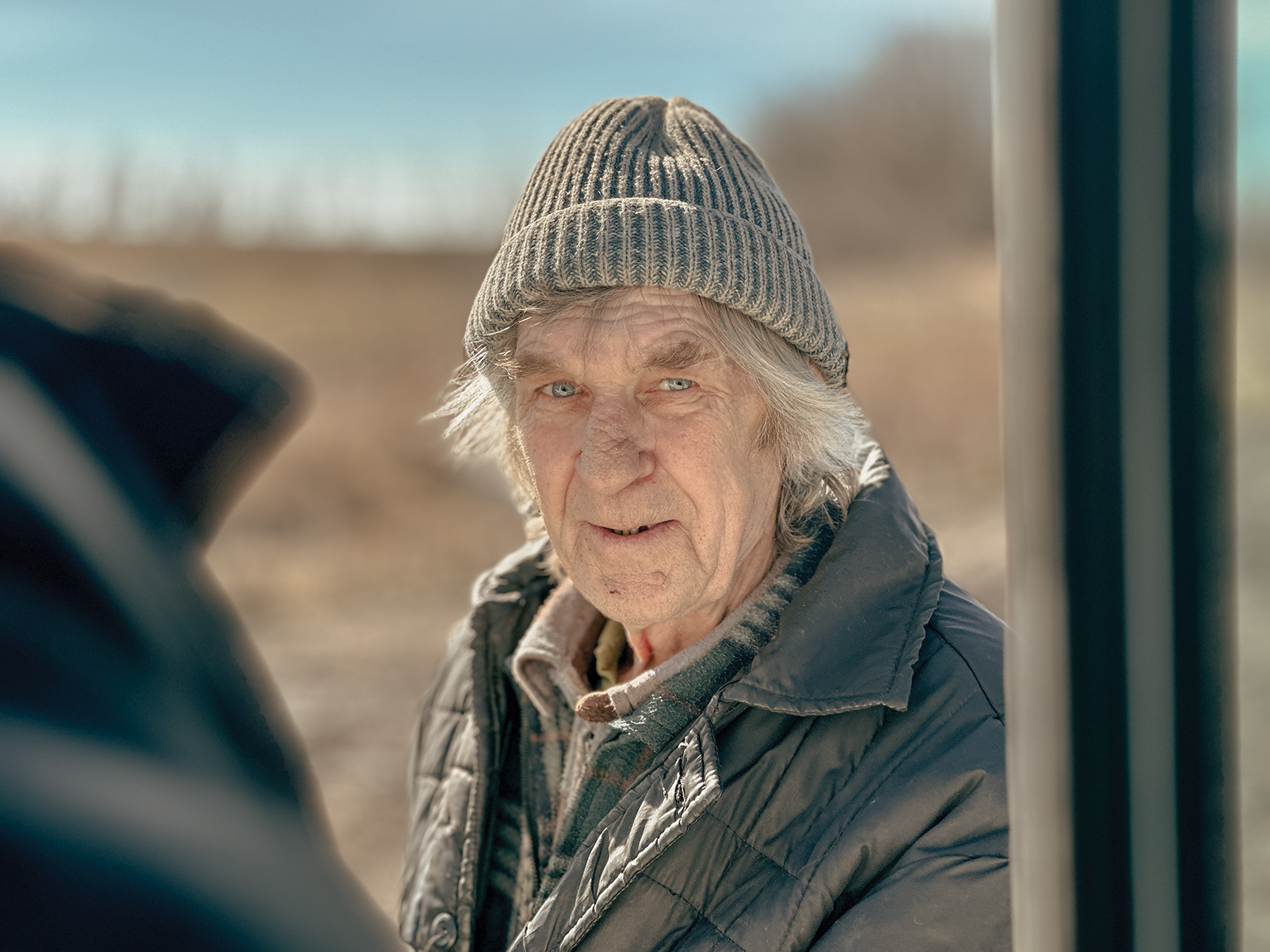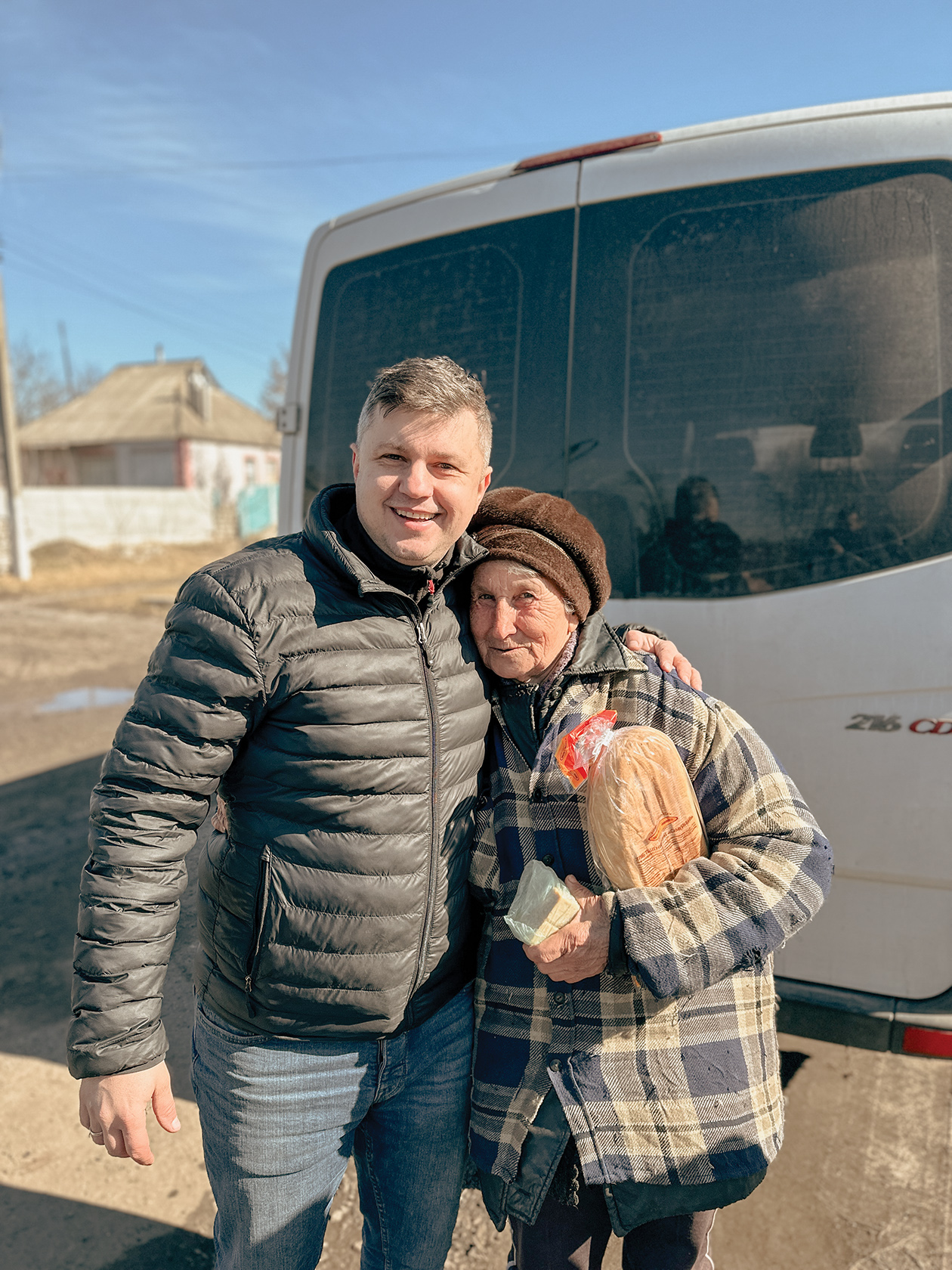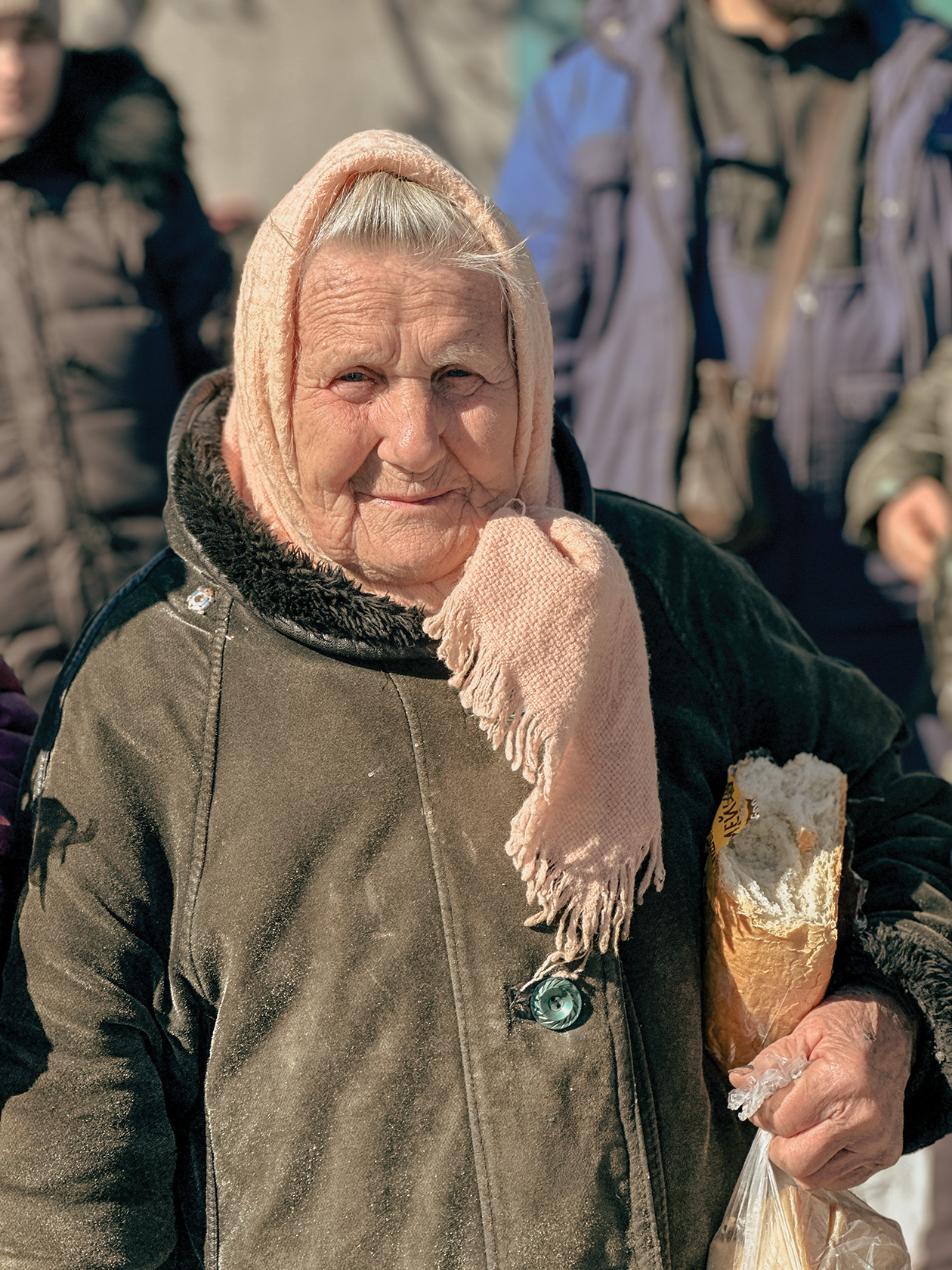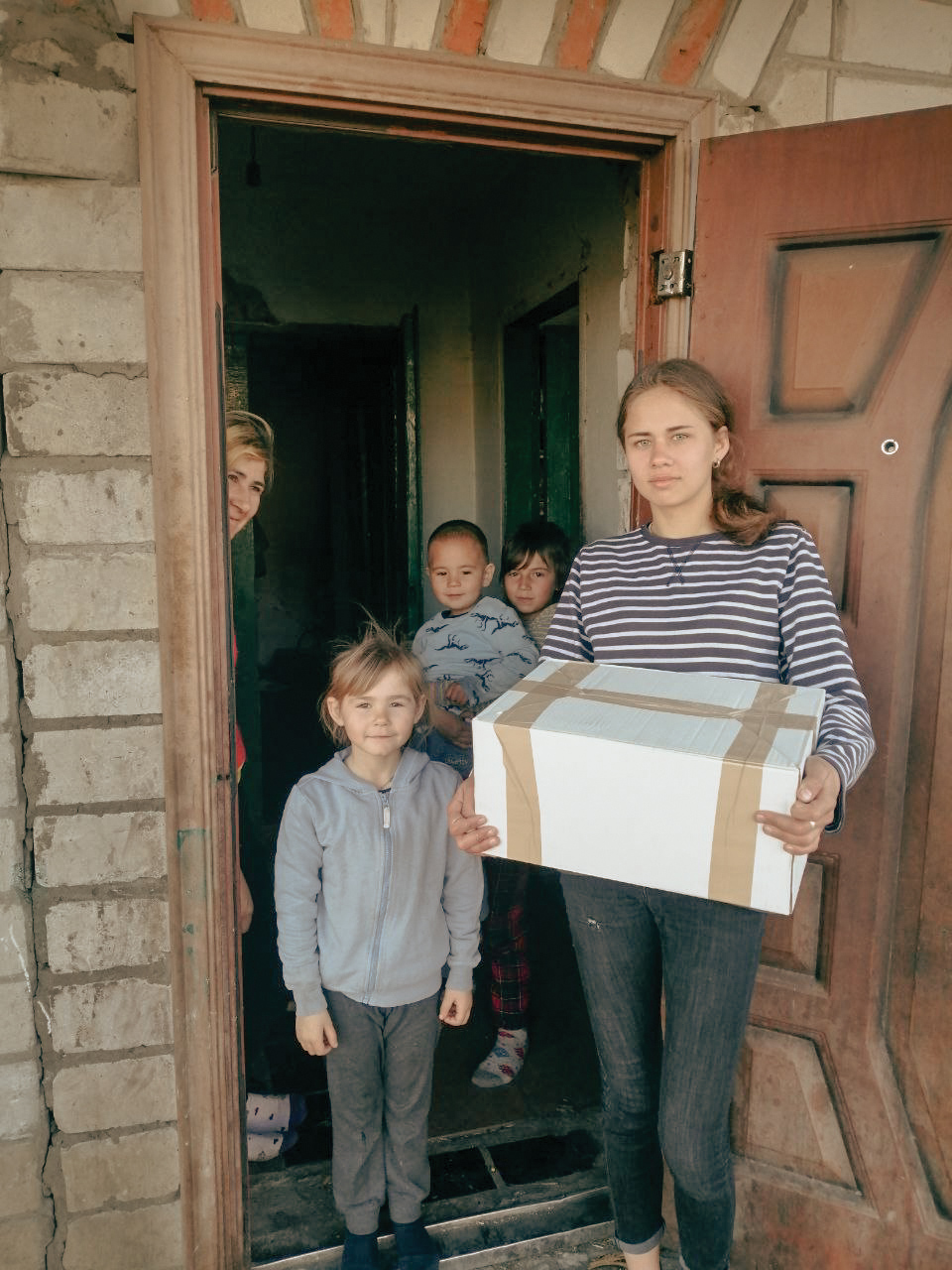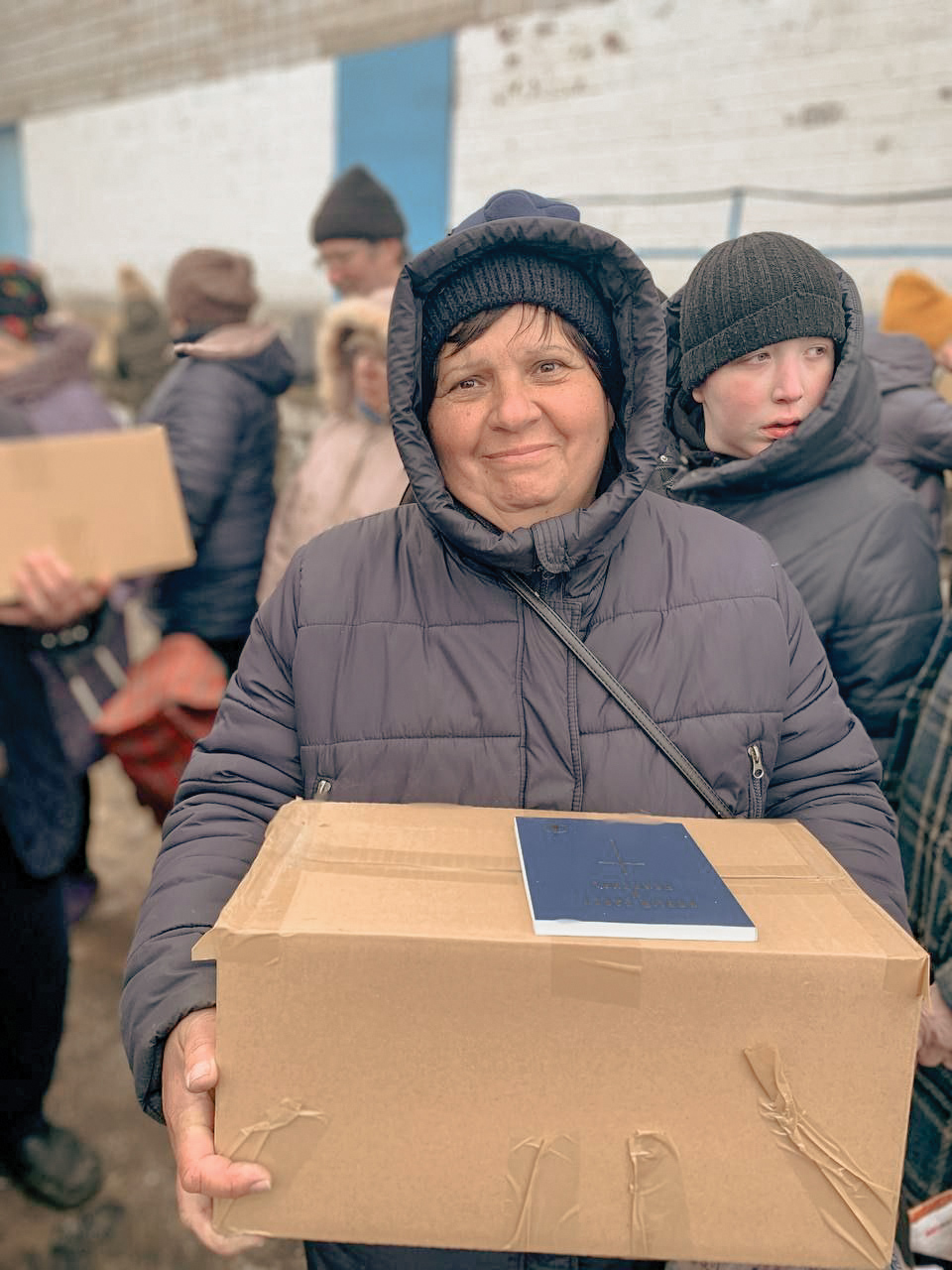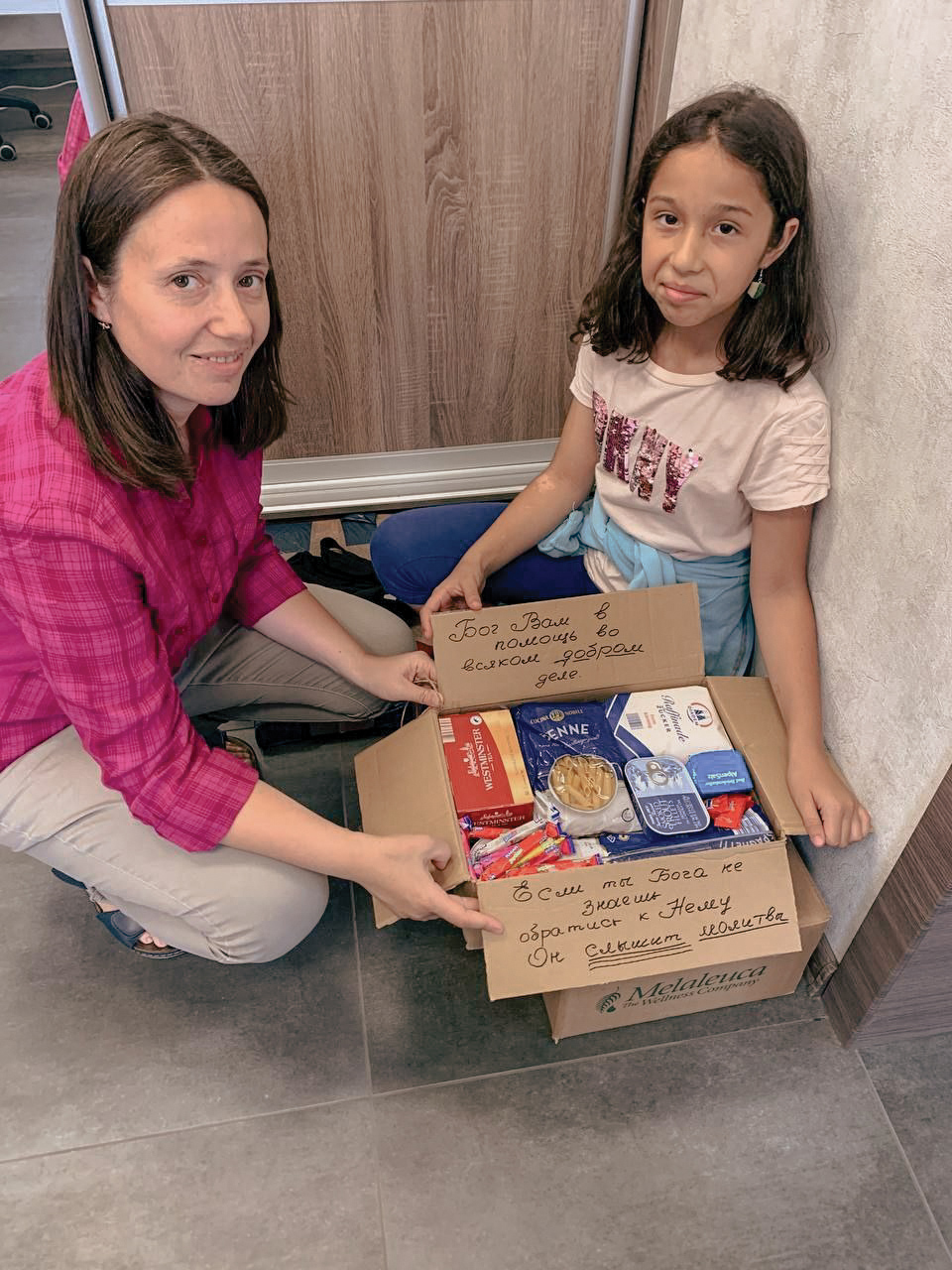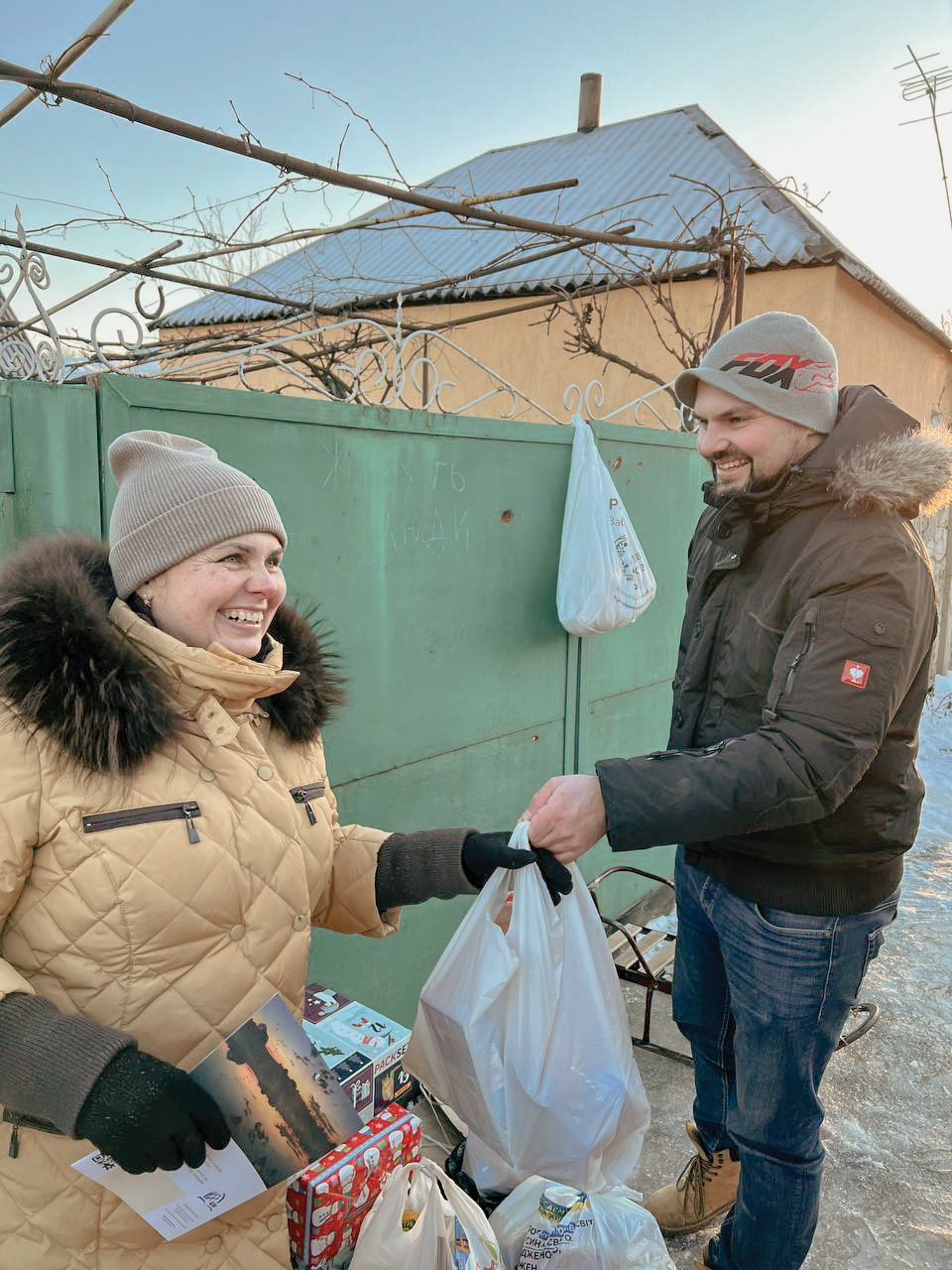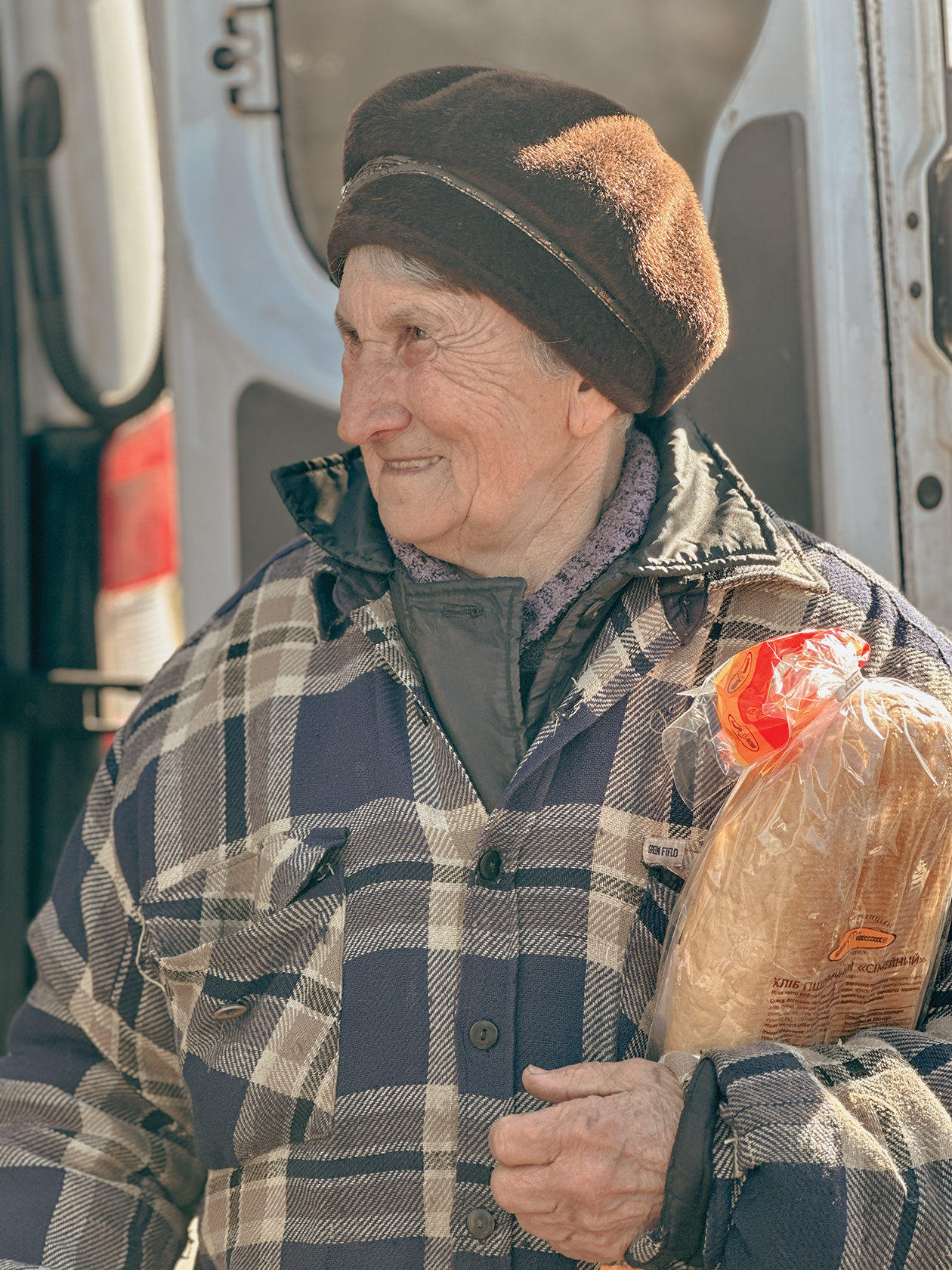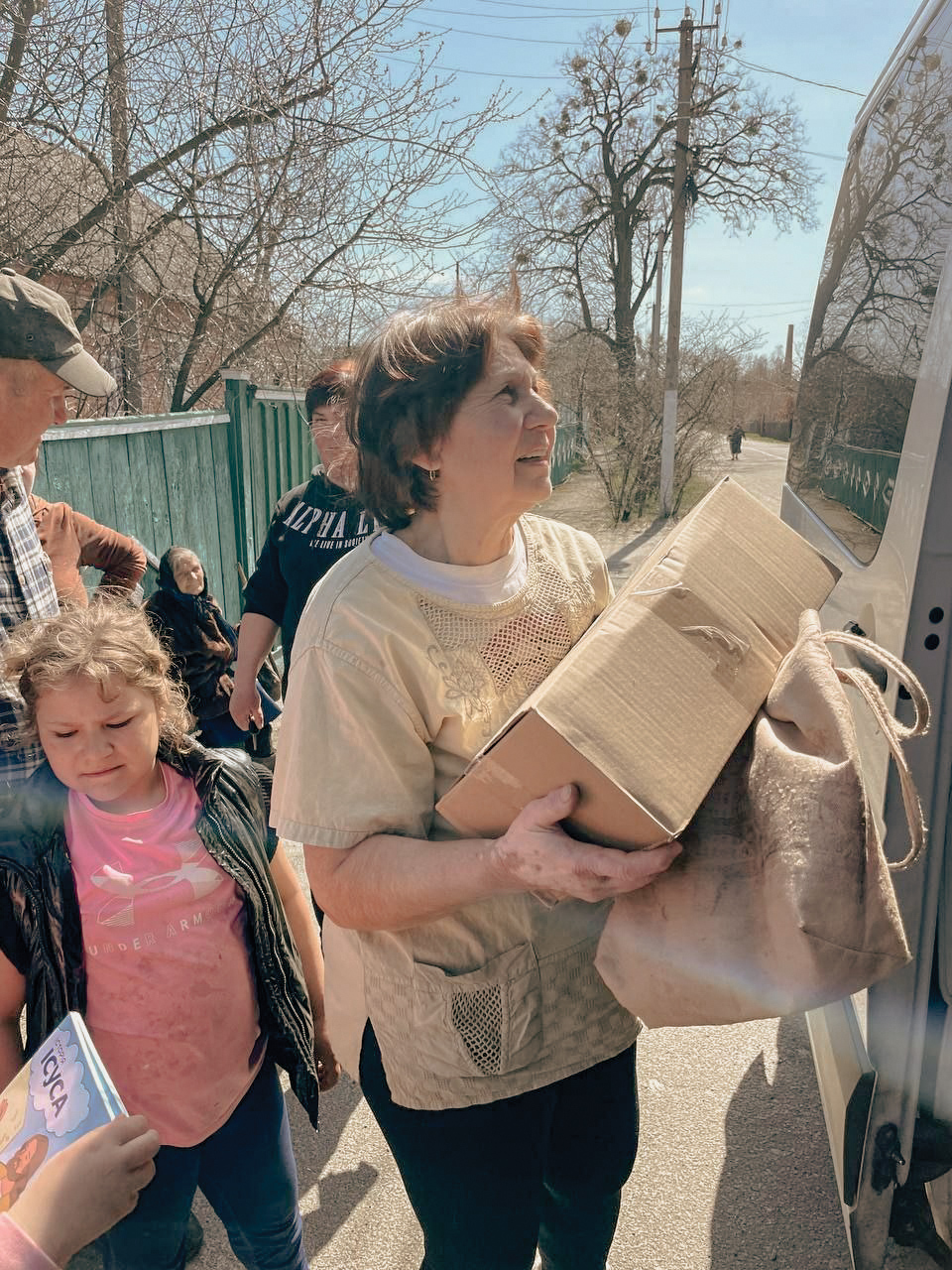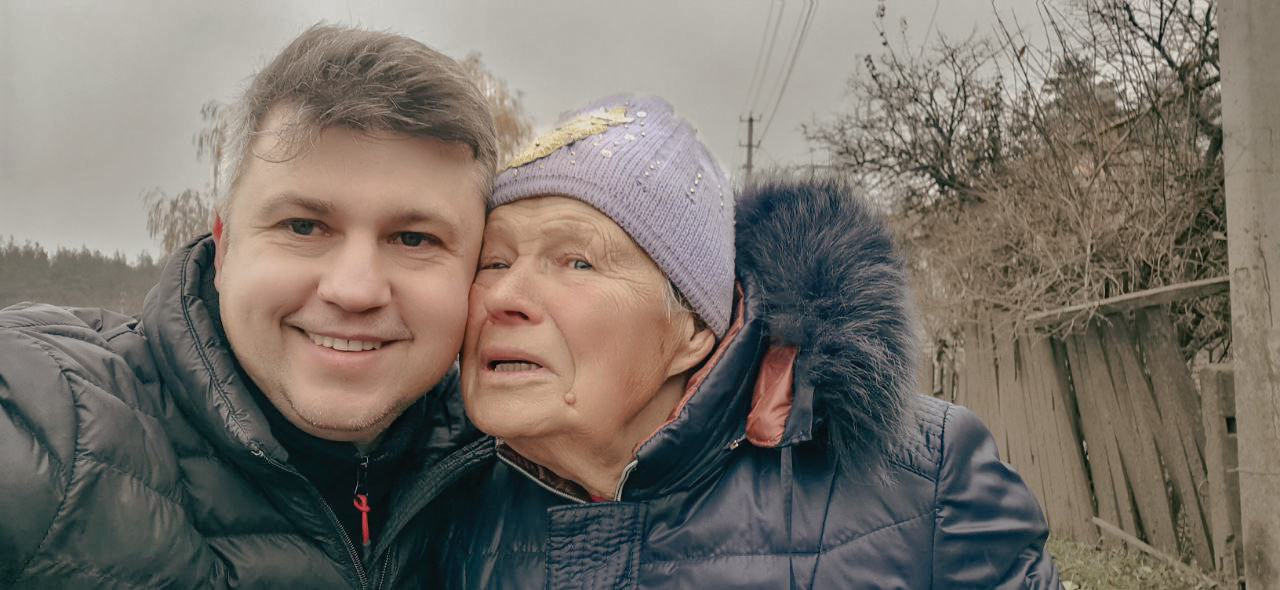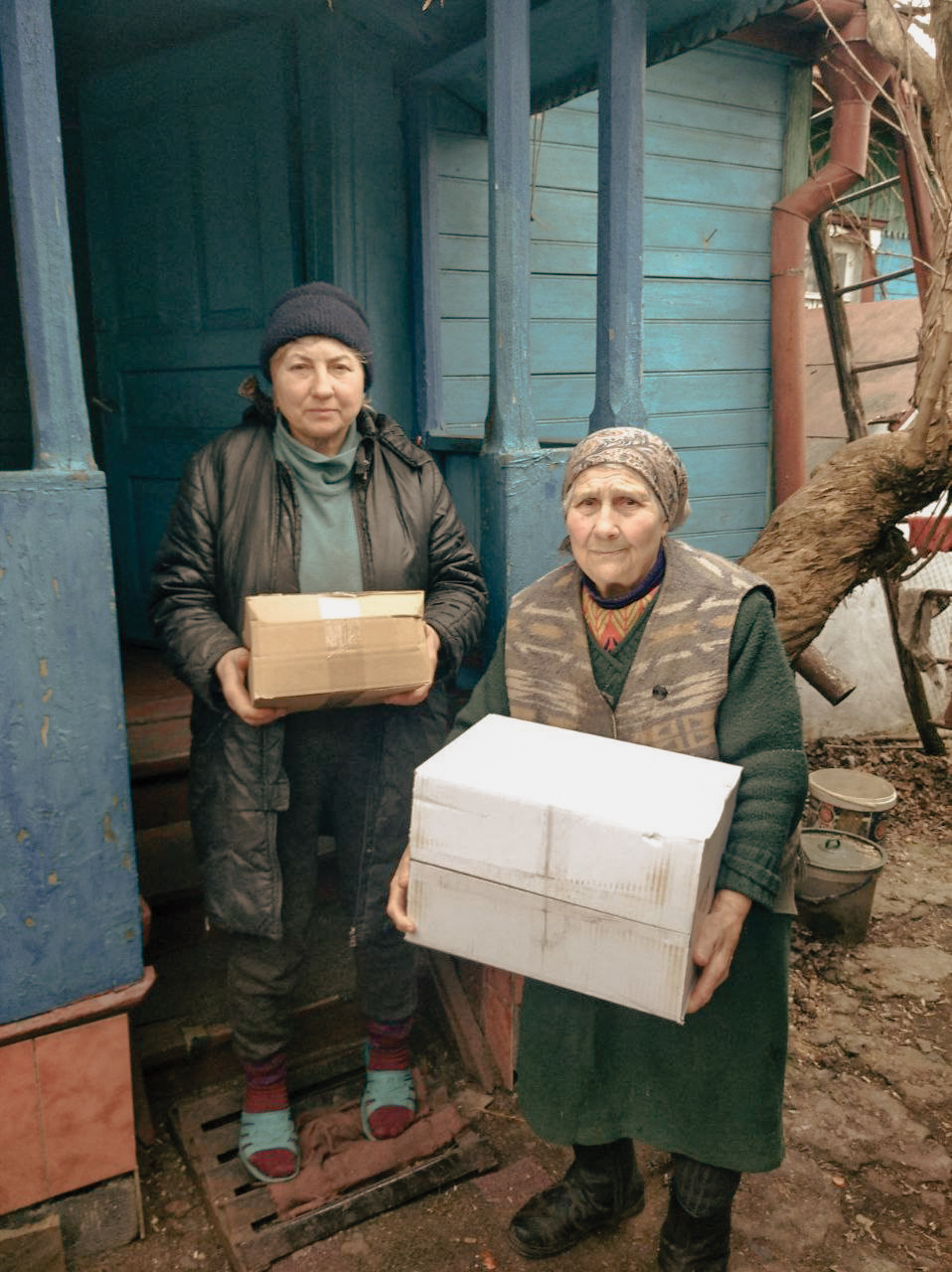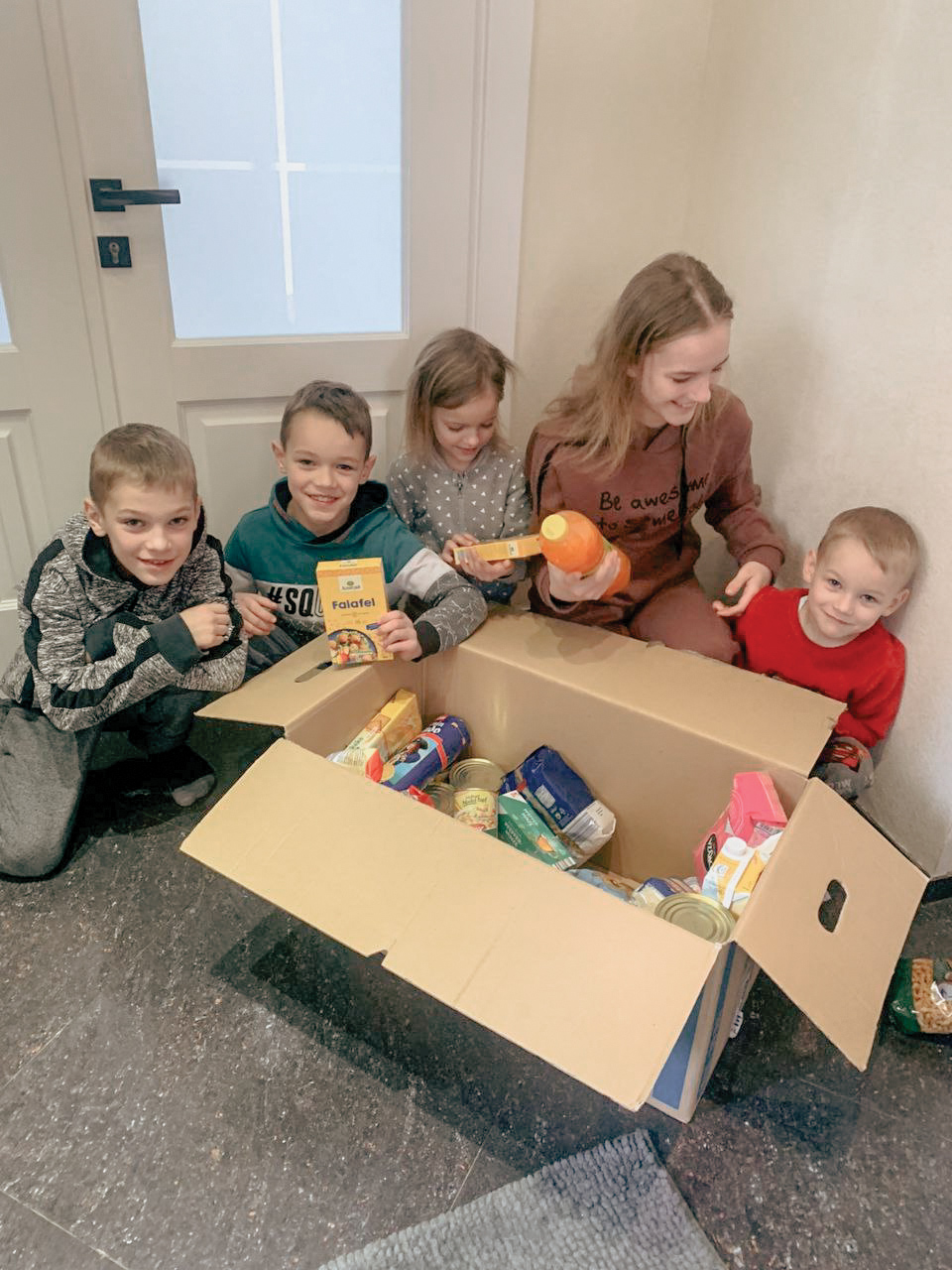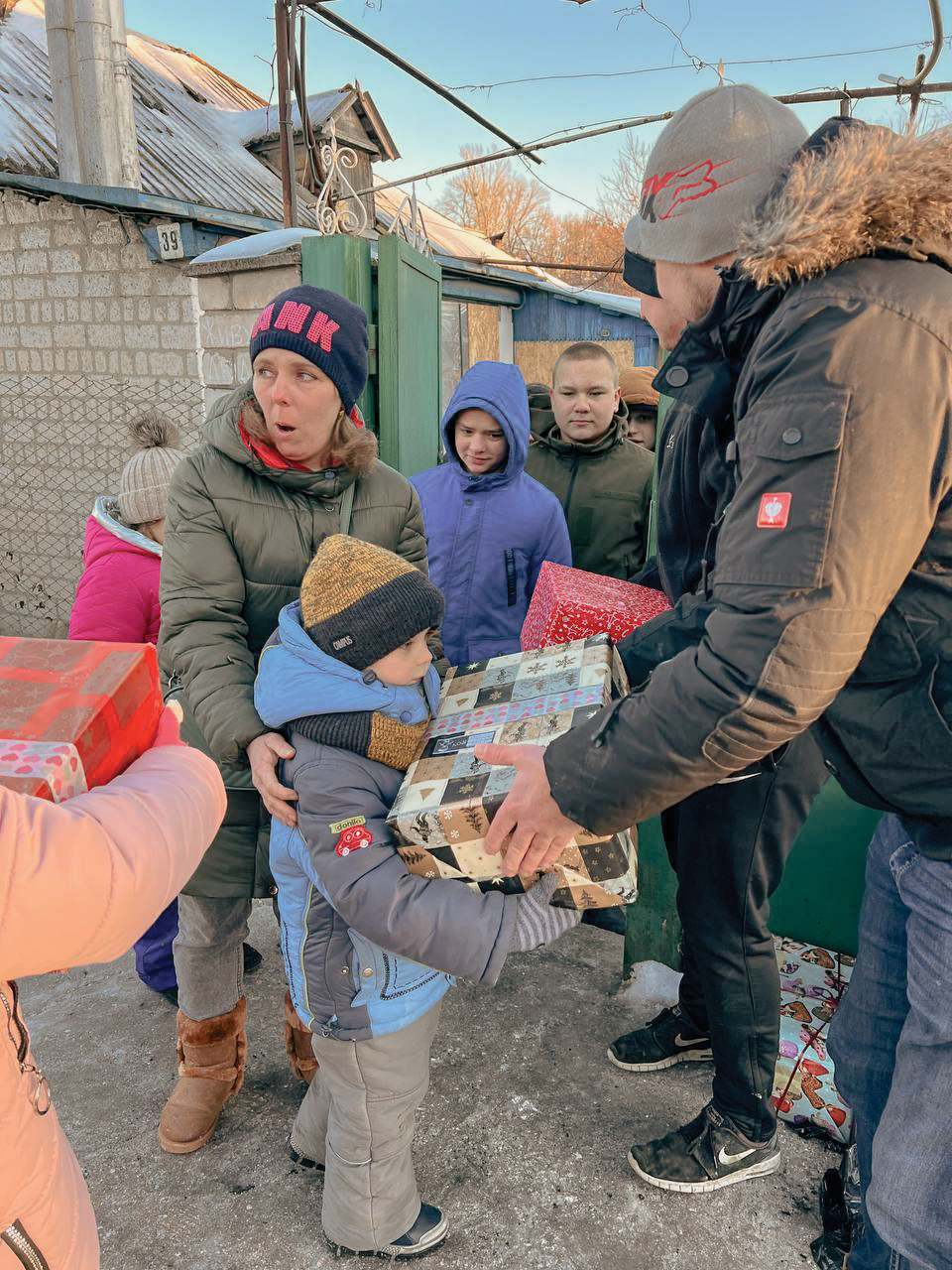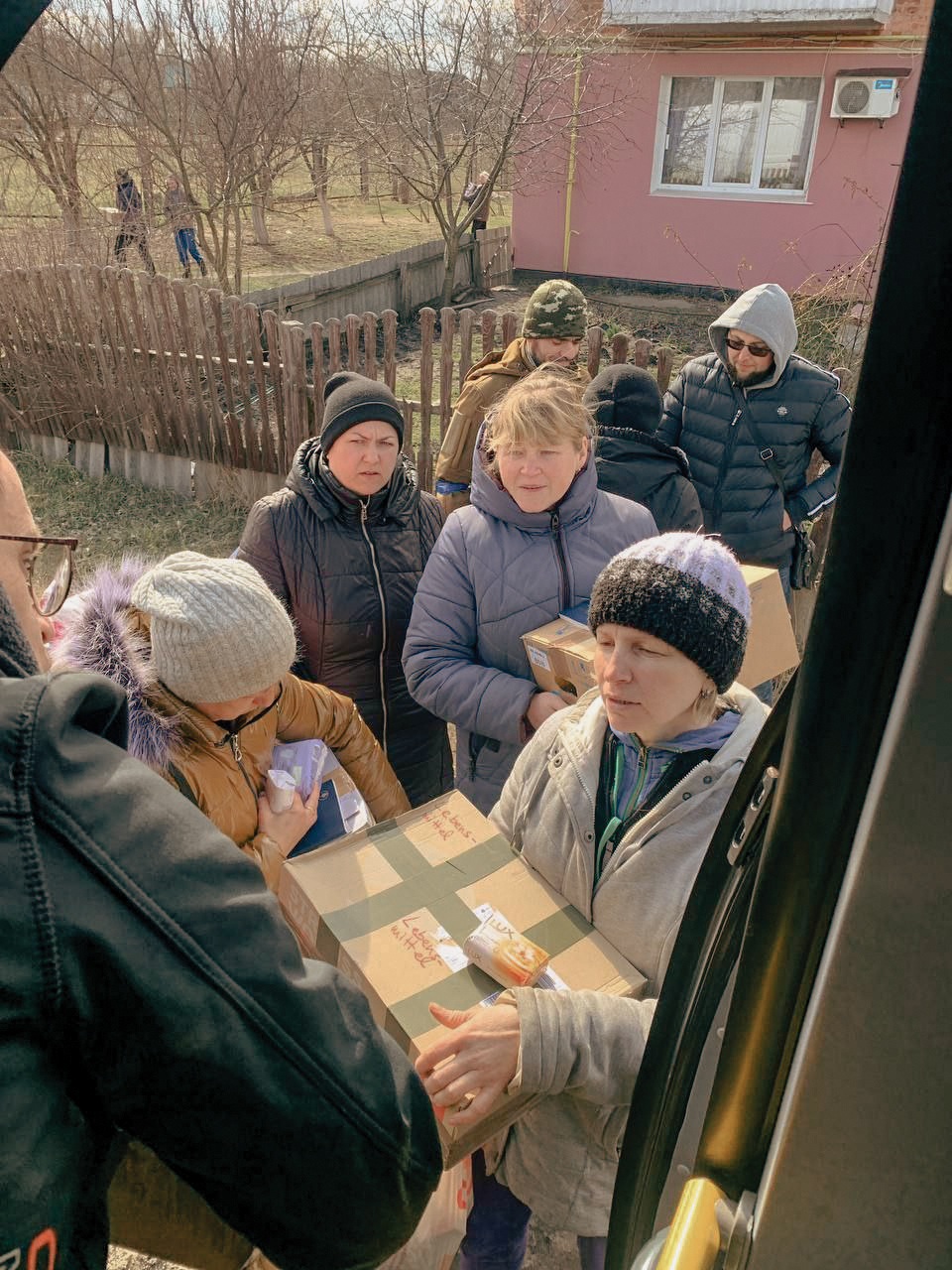The air raid sirens rarely sound in Chernivtsi. The evidence of war seldom reaches this city of 300,000 in southwestern Ukraine that sits about 25 miles from the Romanian border. Residents are spared the buzz of the killer drones, the concussive bomb blasts, the shattering glass, the howl of ambulances, and the cries of the injured.
“We just don’t have anything significant for the Russians to bomb,” says a pastor.
Chernivtsi is a town of cobbled streets, whimsical hotels, mustachioed statues, and dreamy gardens. It’s home to a university whose grounds hark back to the Austro-Hungarian Empire. Its brick-oven pizzerias and cozy cafés conjure a European holiday, not the edge of a war zone.
The relative peace and quiet, though, hasn’t insulated residents from suffering. The New York Times calls Chernivtsi and western Ukraine the “back office of the war,” a place of determined efforts to help alleviate the hardships brought on by Russia’s invasion. Chernivtsi, in particular, feels like the beating heart of that effort—pumping medicine, blankets, transportation, food, and encouragement to those in harm’s way all over the country. It is the center of a global supply chain helping Ukrainians survive. It has also been a waystation for tens of thousands who’ve fled the fighting, often arriving with only a small bag of possessions.
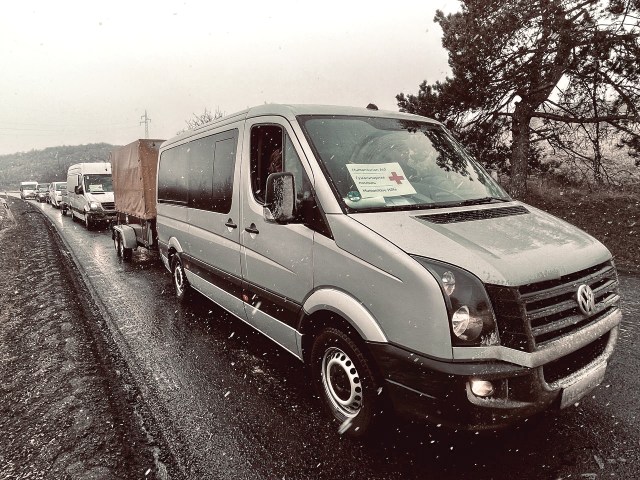
But hearts grow tired. Now, two years after the war began in 2022, once-robust outside humanitarian aid has slowed, diverted by crises elsewhere in the world: The February 2023 earthquake in southern Turkey that killed almost 60,000 people and left 1.5 million homeless. The war in Israel and Gaza.
“I can understand people’s thinking. When their life is not in danger, why should they share the fat piece of bread they have when we are so far away? We are the same way,” says a young pastor in Chernivtsi who, like other pastors interviewed for this story, requested anonymity for fear of being targeted in wartime. “When the war in the Middle East began, we watched on TV and we prayed, but not so often.”
Vyatcheslav Nagirnyak, an energetic organizer who coordinates much of the aid in Chernivtsi, says that in the beginning everyone gave Ukraine’s war victims “the last of what we had.” Churches and Christians in the West also were supportive. “They filled our hands when we would not have had anything more to give. We are a big Christian family.”
Now the family is weary, and so is Ukraine. Russia’s relentless bombings have worn down resolve. Rising prices have also taken a toll, particularly in the bitter winters. The price of wood is up, along with the cost of fuel to run generators that are increasingly needed to maintain electricity. Some churches say they are paying ten times more per month for heating than they paid when the war began.
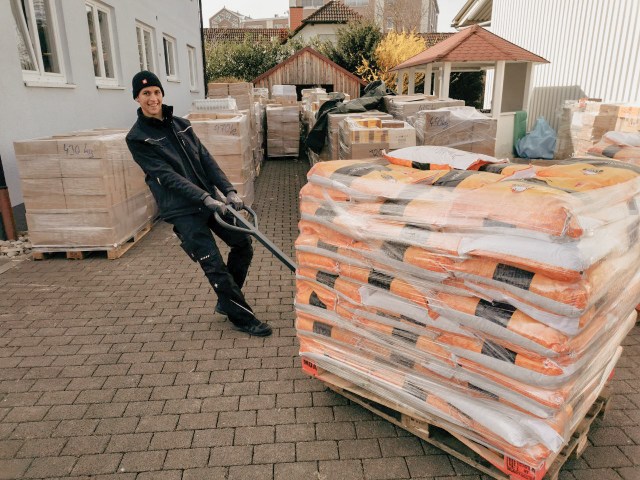 Photo Courtesy of Bible Mission Global (BMG)
Photo Courtesy of Bible Mission Global (BMG)Yet help for the displaced, wounded, bereaved, and traumatized is a persistent need. And volunteers, even in a nerve center like Chernivtsi, are worn thin.
“Yes, we are all weary,” says Volodymyr Vasylovych, a 55-year-old pastor. “But God gives the strength. Everyone asks if we are tired. Yes, but so what?”
Slava Lesyk, a tall, salt-and-pepper-haired pastor with rectangular glasses, laughs when he recalls his efforts to help when the war began.
On February 24, 2022, Lesyk had jolted awake in his 18th-floor Kyiv apartment to the sound of explosions. He grabbed his wife and child and prayed that God would show them what to do. He pulled on a sweatshirt and jeans and ran down to the street. Panicking people were driving erratically, crashing into each other, leaping from their cars, and running away. They looked like mice fleeing an angry cat.
In a daze, Lesyk went to a pharmacy. He bought some iodine and two styptic pencils. He went back to his apartment and sat on the sofa, staring in shock at his little paper bag of “war supplies.”
“It was just so ridiculous. How could God use people like me, so naive about war, so primitive in my thinking?” he says, laughing. Yet now, he realizes, God loves to use people who don’t know what they’re doing, as long as they’re available and willing to show his love.
“He used us to [eventually] deliver thousands of tons of humanitarian aid shipments to people in need,” Lesyk says.
Even in their shock, Lesyk and others jumped into action through networks of local churches that spanned the nation and the globe. There were no official directives from administrative offices; this was an organic movement of the Holy Spirit, like a heartbeat.
As in other cities, it wasn’t hard for Christians in Chernivtsi to find people in need; they were on the roads, at the border crossings, stuck in endangered areas, and weeping in the wreckages of their homes. Within just a few months, the war had displaced 8 million Ukrainians inside their country (out of a population of 43 million) and sent an additional 6 million Ukrainians across borders to other countries, creating the largest refugee crisis in Europe since World War II.
“I told the people in my church, ‘You be salt and light to these people! Hug them! Be with them! Serve them!’ ” says Mikhail Prodan, a Pentecostal pastor.
Everyone knew the churches could not serve everyone. Yet people opened their homes and churches opened their doors. One church fashioned makeshift mattresses from rolls of thick construction foam and lined its sanctuary and overflow balcony with sleeping spaces. Church members from Chernivtsi carried steaming pots of tea to cold and exhausted people waiting in line at the nearby border with Romania. They gave refugees blankets, food, and Bibles. They asked people where they wanted to go and coordinated with churches at those destinations to welcome them. Chernivtsi’s Christians even cleaned, sanitized, and restocked the border crossing’s reeking bathrooms.
As aid poured into Ukraine from abroad, pastors in Chernivtsi and other cities partnered with international groups like Bible Mission Global (BMG), a German nonprofit that supports local churches across the former Soviet Union and Central Asia. It also partners with International Cooperating Ministries (ICM), a US-based ministry working with churches around the world. BMG and ICM together have built 358 churches and church-based community centers in eastern Europe, Russia, and Central Asia—72 are in Ukraine.
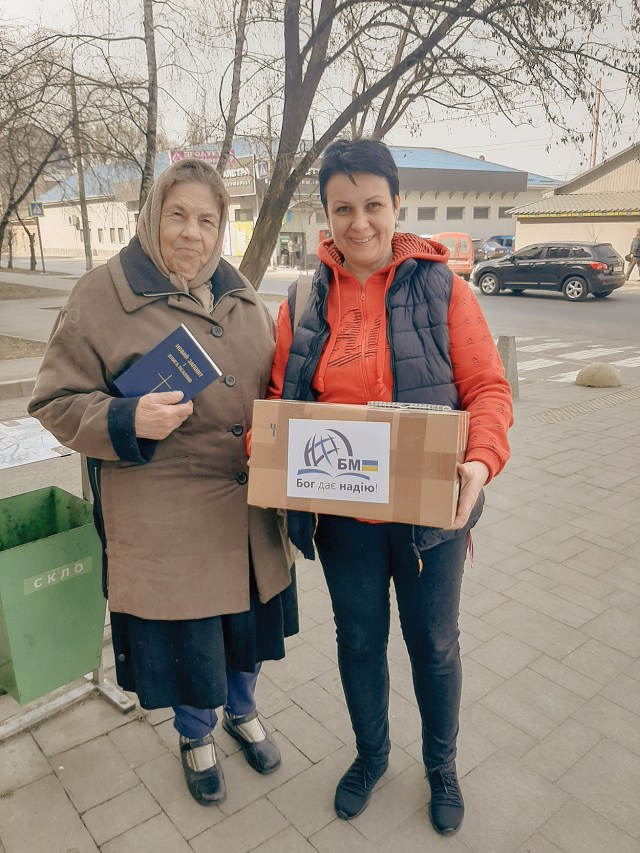 Photo Courtesy of Bible Mission Global (BMG)
Photo Courtesy of Bible Mission Global (BMG)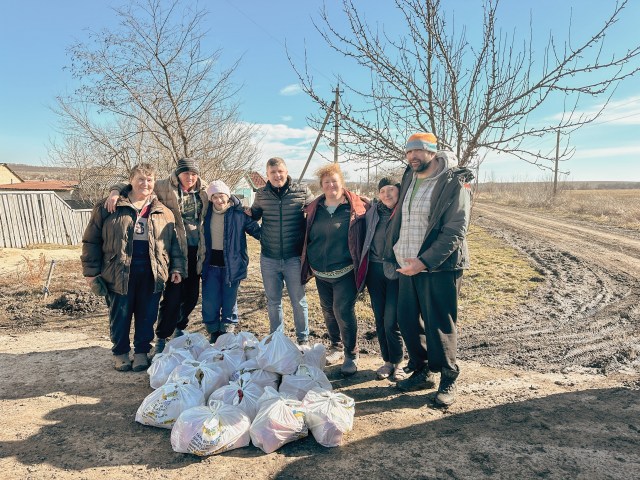 Photo Courtesy of Bible Mission Global (BMG)
Photo Courtesy of Bible Mission Global (BMG)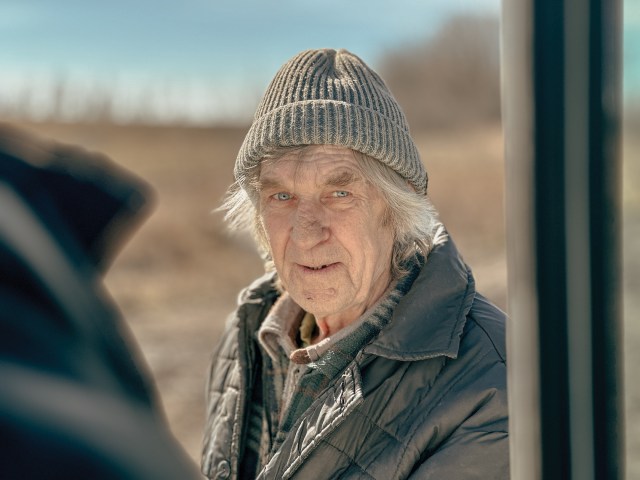 Photo Courtesy of Bible Mission Global (BMG)
Photo Courtesy of Bible Mission Global (BMG)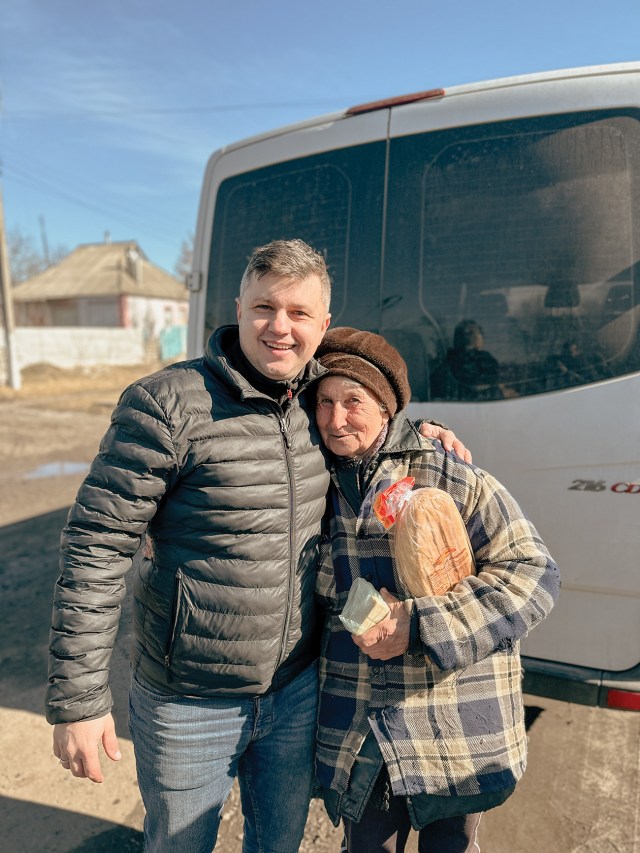 Photo Courtesy of Bible Mission Global (BMG)
Photo Courtesy of Bible Mission Global (BMG)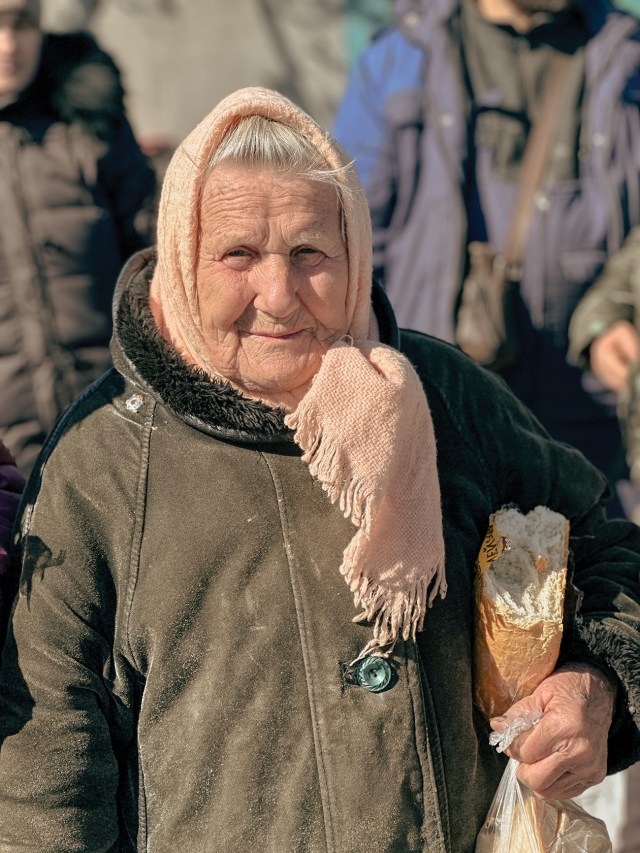 Photo Courtesy of Bible Mission Global (BMG)
Photo Courtesy of Bible Mission Global (BMG)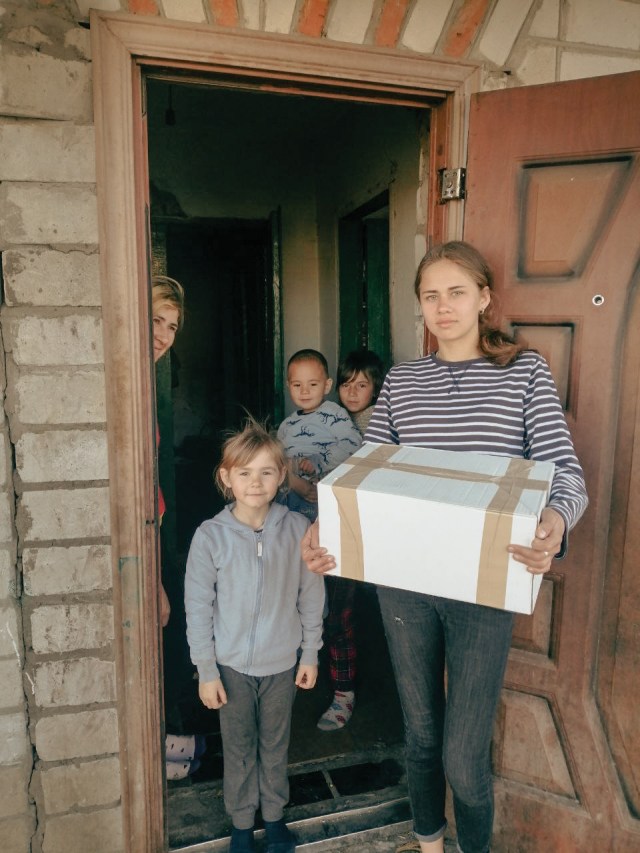 Photo Courtesy of Bible Mission Global (BMG)
Photo Courtesy of Bible Mission Global (BMG)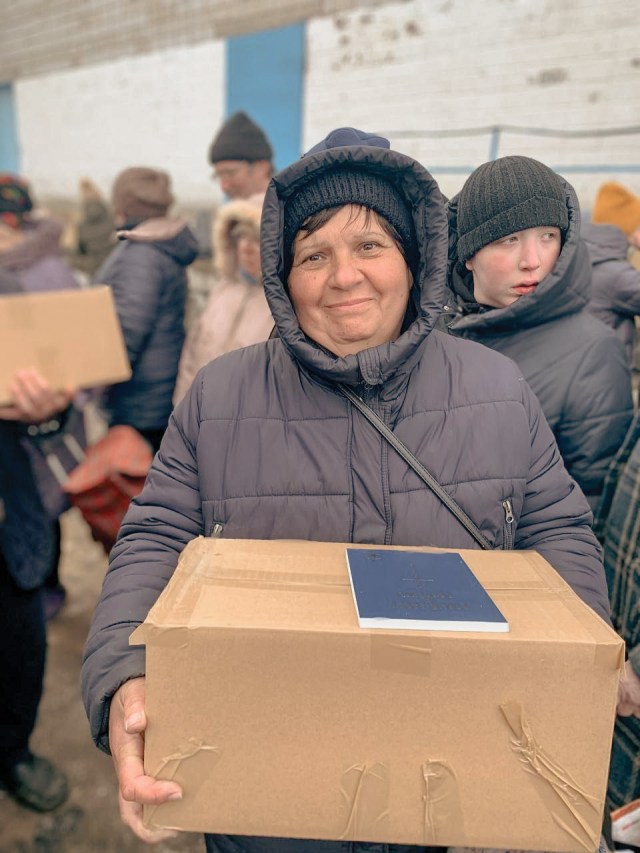 Photo Courtesy of Bible Mission Global (BMG)
Photo Courtesy of Bible Mission Global (BMG)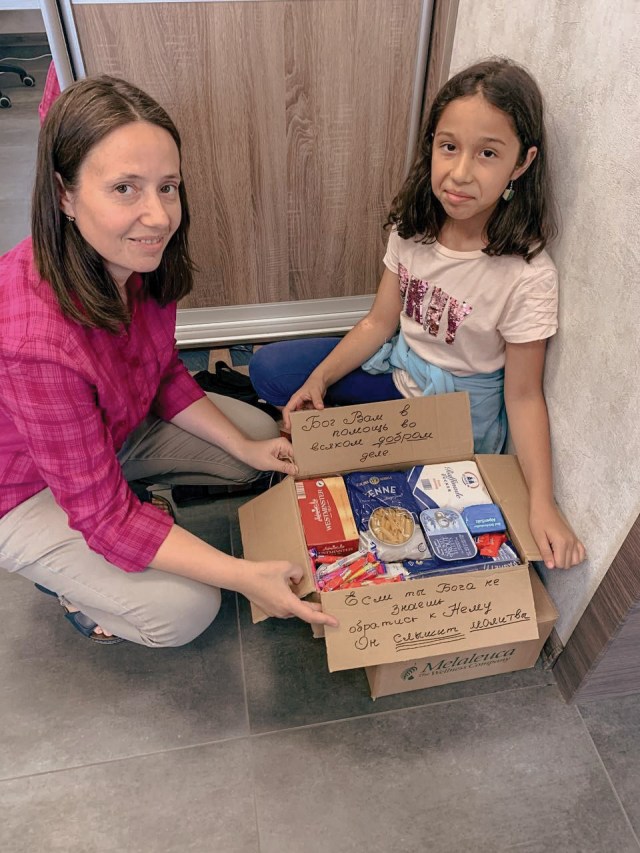 Photo Courtesy of Bible Mission Global (BMG)
Photo Courtesy of Bible Mission Global (BMG)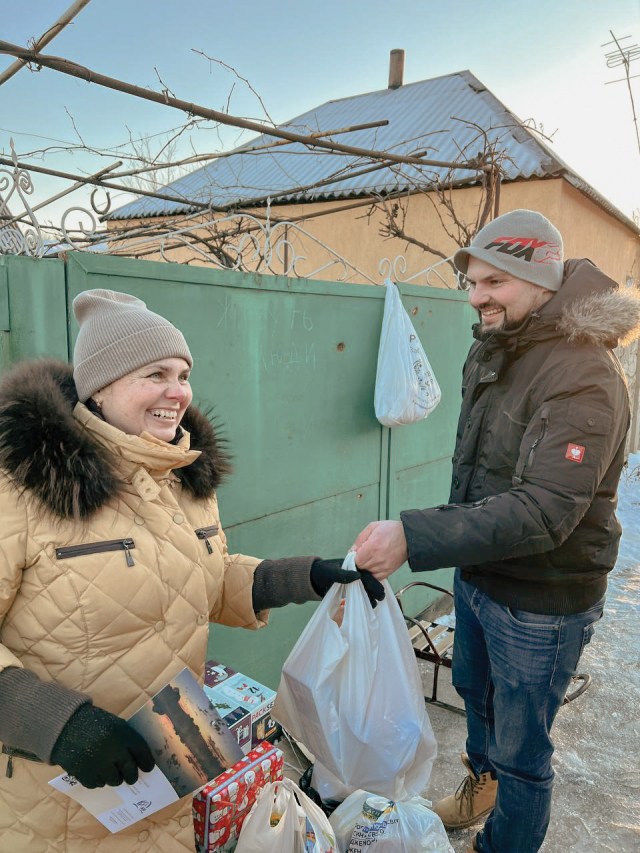 Photo Courtesy of Bible Mission Global (BMG)
Photo Courtesy of Bible Mission Global (BMG)With ICM’s help, in the past two years BMG has distributed more than 2,000 tons of food, clothing, blankets, cookstoves, firewood, Bibles, children’s gospel materials, bicycles, and generators from their warehouse in Niedernberg, Germany. They’ve sent 100 trucks from Germany to Ukraine, along routes through countries like Poland, Czechia, Hungary, Austria, and Romania.
The trucks are unloaded at four warehouses that serve as distribution hubs in Ukraine—Chernivtsi, Uzhgorod, Lutsk, and Kyiv. Coordinated by BMG’s Ukraine director Roman Zlydennyj, Ukrainian believers come to the hubs with vans, load up with supplies, and drive them to churches in the 22 regions where Ukrainians are in need.
Another US-based organization, Mission Eurasia, has also used warehouses in Chernivtsi as hubs to distribute more than 300,000 food packages to displaced families. More recently, the group, which is led by Ukrainian pastor Sergey Rakhuba from Nashville, began staffing mobile medical clinics to serve in areas of fighting.
“The greatest needs are often found in heavily damaged villages and towns close to the frontline, as well as in communities where large numbers of displaced people are concentrated,” says Rudi Myhovych, a neurologist and president of the Christian Medical Association of Ukraine.
Sasha Riabyi, who pastors a church on the outskirts of Kyiv, coordinates with the church networks and warehouses in Chernivtsi. Riabyi works as national director for US-based nonprofit Novi Community. He has funding and other support from groups like the Mennonite Central Committee, the American Ukrainian Relief Association, and Friends of Ukraine. “We are acting to solve all kinds of needs on a daily basis,” Riabyi says.
He often travels to the frontlines himself—to places like Kherson, Zaporizhzhia, and Kharkiv, with trucks loaded with food supplies and coffee. “I don’t go as a tourist,” he says. “We are often following the soldiers in.”
International support is crucial to Ukraine’s frontline war efforts. In Germany, BMG ran into trouble when officials limited sales of food staples to Ukraine out of concern for shortages at home. But a staff member knew a truck driver, who knew the owner of a Turkish market in Germany.
The staff member had coffee with Muhammed, the truck driver, to explain the situation. “What do you need?” Muhammed asked.
In that way, a Turkish-owned grocery supply chain sent food to Ukraine, which church volunteers unloaded from Muslim-owned trucks. In a similar story, German Christians bought 20 tons of surplus rice from a Chinese restaurant in Hamburg, then put them on trucks bound for Ukraine. It worked so well they did it again a few months later.
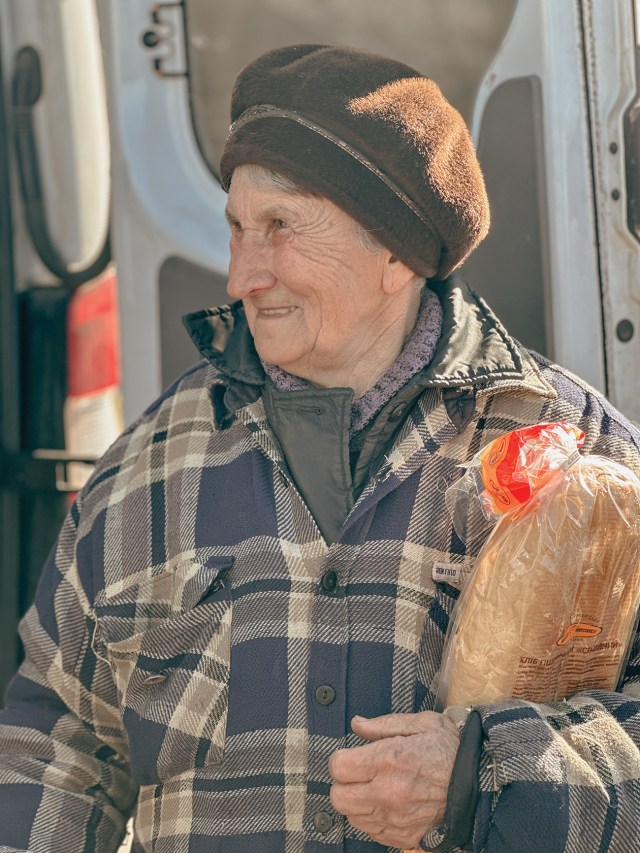 Photo Courtesy of Bible Mission Global (BMG)
Photo Courtesy of Bible Mission Global (BMG)Christians in Chernivtsi, like so many other Ukrainians, have also helped troops through countless smaller and more eclectic efforts. (At least three-fourths of Ukrainians know someone who’s been killed or wounded in this war, so soldiers are on everyone’s minds.)
Church volunteers, ranging from grandmothers to young students, gather to pray and sing while making camouflage netting for troops, stringing fishing nets over wooden lattices and weaving in strips of camo fabric.
Church families buy knee pads and waterproof boots. They save empty cans, stuff them with rolls of cardboard, and pour in melted wax to make “trench candles,” so soldiers can have light and warmth in the cold.
These are delivered to the military checkpoints near the “zero line” by church volunteers willing to take the risks every month. It’s a round trip of about 20 hours, depending on weather and war conditions.
Chernivtsi and its Christian community are not unique in their efforts, but residents use its unique setting away from the war to help others.
Denys and Daria Kovalenko lived in Mykolaiv, a port and shipbuilding city in Ukraine’s south that came under attack in the war’s early hours in February 2022. An enormous queue of people waited for medicines at the pharmacy where Daria worked. She had served 860 people by closing time that afternoon, when more air raid sirens sounded. She ran to the market for supplies but found the shelves empty. The couple, both pharmacists, spent the next nights in bomb shelters and on mattresses in narrow apartment corridors. When they saw the airport on fire, the Kovalenkos threw documents, a few clothes, and some snacks in a suitcase.
They spent weeks on the run. As they drove away from Mykolaiv, they passed burned military vehicles and saw bodies in the streets. They called friends, trying to figure out what to do. Eventually, a family friend in Chernivtsi called a church that agreed to help them. When Denys and Daria arrived at the Pentecostal church in the village of Chahor, about five miles south of Chernivtsi, a young family took them into their home.
They “accepted us, not even knowing who we were or what we were doing,” Daria says. “The first day we arrived, we took a little walk, and the family entrusted their two-year-old child to come with us.”
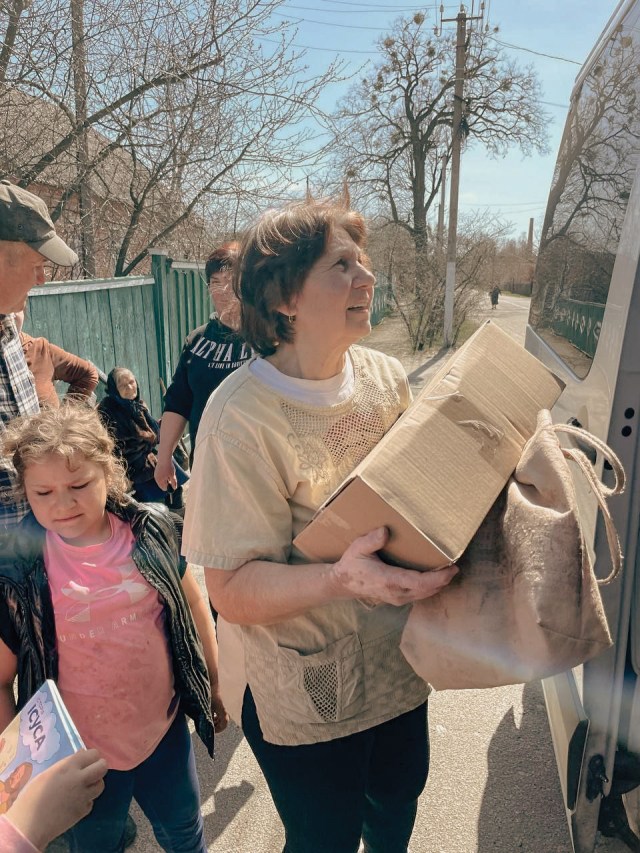 Photo Courtesy of Bible Mission Global (BMG)
Photo Courtesy of Bible Mission Global (BMG)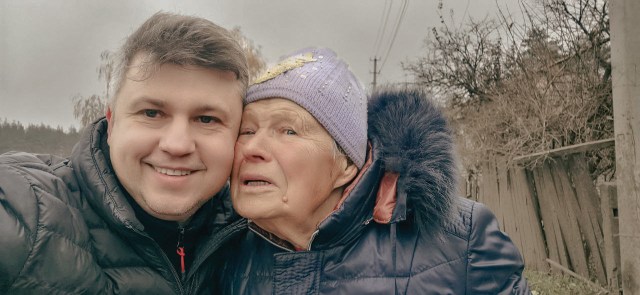 Photo Courtesy of Bible Mission Global (BMG)
Photo Courtesy of Bible Mission Global (BMG)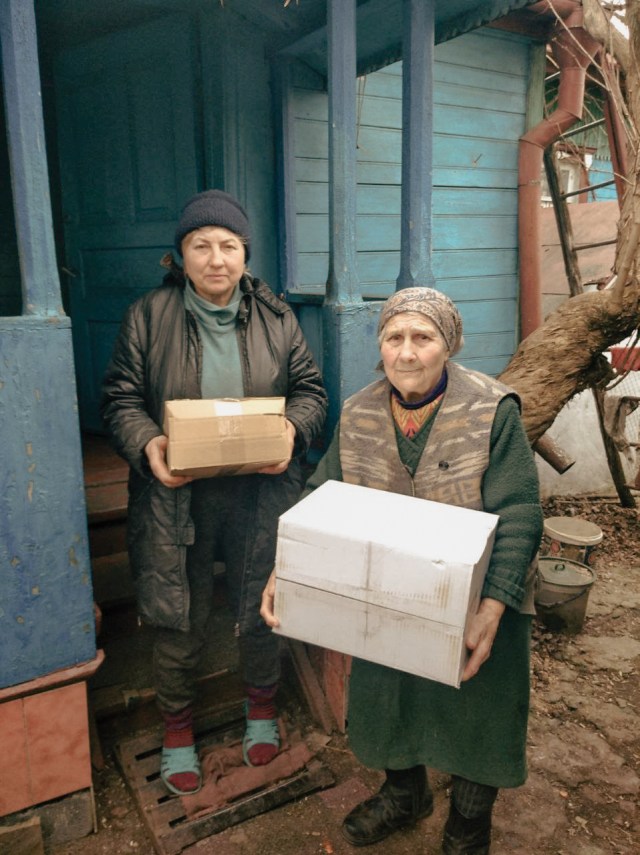 Photo Courtesy of Bible Mission Global (BMG)
Photo Courtesy of Bible Mission Global (BMG)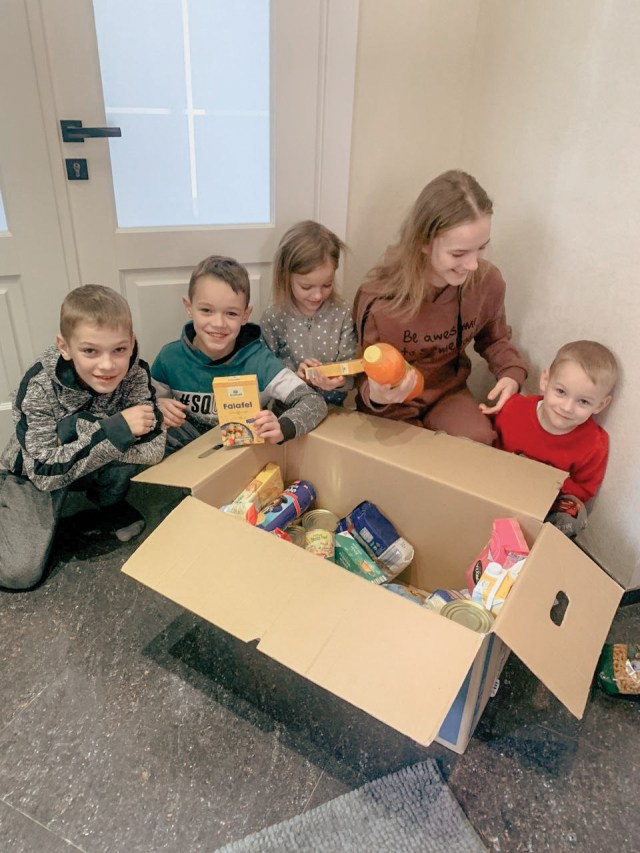 Photo Courtesy of Bible Mission Global (BMG)
Photo Courtesy of Bible Mission Global (BMG)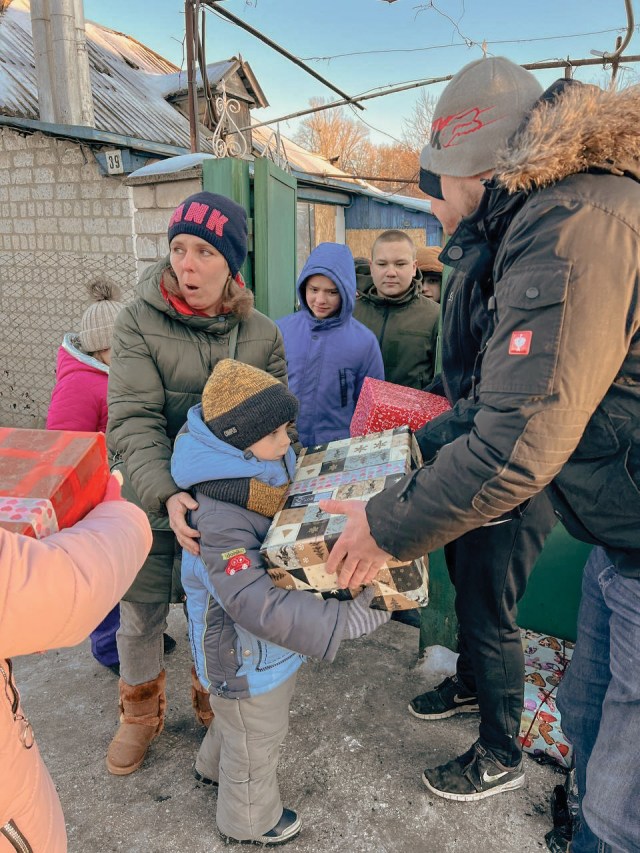 Photo Courtesy of Bible Mission Global (BMG)
Photo Courtesy of Bible Mission Global (BMG)Nominally Orthodox but practically agnostics, Denys and Daria found themselves attending the worship services. “It was weird,” Daria says. “But we saw the difference. … It was like the difference between heaven and earth.”
Together they embraced this familiar yet also new faith. They moved into the church, where volunteers had started a pharmacy for displaced people. Denys and Daria run it now, a big stockroom lined with long, tall rows of handmade shelving full of donations from humanitarian groups.
“There’s so much we don’t yet understand about faith,” Daria says. “Like our pastor was telling us we need to love our neighbor. When I first heard that, I burst into tears. Forgiveness and love are so hard … particularly when I think about the Russians.”
Denys says they need to pray for the Russians. “We have to pray for them to have wisdom so they will leave our country.”
“Our life has changed so completely,” he continues. “Before the war, we wanted to get our life arranged in a material way. You know, get a house, a car, the next thing and the next. But then we had to run with just a little suitcase. Now we are living in a church! We have nothing. No house, no car, but we are happy. We have what is truly important.”
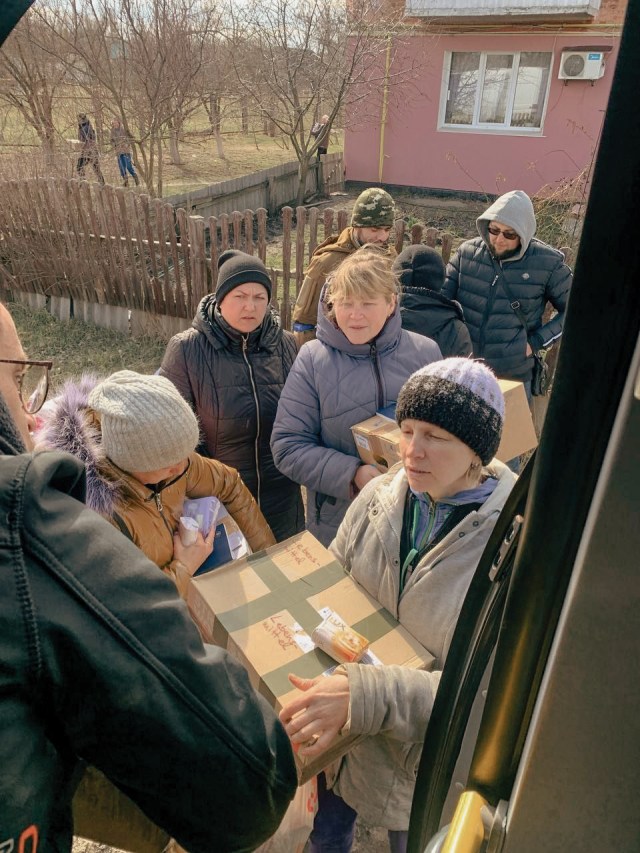 Photo Courtesy of Bible Mission Global (BMG)
Photo Courtesy of Bible Mission Global (BMG)Pastors and Christian volunteers say only a small portion of those displaced by the war have experienced such clear conversions. But all experience God’s love through his people serving them during the worst experiences of their lives.
Those serving in Chernivtsi and other cities also say the worst of times have included some of the best of times.
“What we are doing and how we are serving as Christians right now has never happened in the life of our church,” explains Riabyi, the pastor near Kyiv. “Before the war there would be about 30 people at our church, and to invite one or two non-church people was a real challenge. Now I text out a message to invite people to the church to pray, and I can have over 200 or 300 people in the church, and this is a church with 100 seats. And it will include people from the community who did not know they wanted to pray before the war. People are listening and trying to understand God, and they are turning to God. These are difficult times but there is a purpose in the difficulty.”
In Chernivtsi, aid coordinator Vyatcheslav Nagirnyak says, “In the first months of the war we were witnesses to miracles that the Lord did. We prayed, God answered and provided what we needed. So we felt like we were living in the book of Acts.”
Despite the persistent military stalemate, the shortages, and the weariness of Ukrainians everywhere, Nagirnyak’s confidence in God’s power has not ebbed. He’s seen too much light in the dark rubble of war. It’s just that now the context is even more urgent: “Now,” he says, “we see that we are actually living in the book of Revelation.”
Ellen Vaughn, an author and speaker based in northern Virginia, reported this story from Chernivtsi, Ukraine. Her latest book is Being Elisabeth Elliot.
With additional reporting by Mindy Belz.

